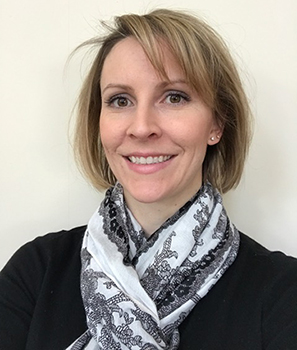
Kari Shagena
Kari Shagena is combining poetry and Holocaust survivor testimony to inspire empathy and action in her students following an IWitness seminar in Michigan last summer.
Shagena, a language arts and social studies teacher at Richmond Middle School, was one of over dozen Michigan educators who attended USC Shoah Foundation’s IWitness Summer Institute in Farmington Hills this past August, a three-day seminar that introduced educators to everything they need to know to incorporate testimonies and activities from IWitness into their classrooms.
Shagena was invited to attend by Sean McBrady, social studies consultant at Macomb Intermediate School District. After teaching about the Holocaust for six years, she thought the seminar might help her bring something new to her class.
In addition to learning the basics of the IWitness website, such as how to search for testimonies and create her own lessons, Shagena said she enjoyed hearing the other teachers’ ideas about how they wanted to incorporate testimony into their classrooms.
She was particularly drawn to the activity Found Poetry – A Language Arts Lesson, which asks students to watch testimony clips and write their own found poems out of the words of the survivors. She thought it would fit nicely with their curriculum – and when Shagena’s students completed the activity, she was impressed with what they came up with.
“Tears formed in their eyes, and an emotional connection resulted,” Shagena said. “They could see the pain, the sorrow, and the horror the survivors experienced more so than ever reading about it. The stories touched them deeply.”
Students had already been introduced to the Holocaust through informational articles and the book The Devil’s Arithmetic, but watching testimonies of survivors allowed them to form a more personal connection. They chose meaningful passages from the testimonies to create truly wonderful found poems, Shagena said.
While it is shocking for students to learn of the Nazi persecution of Jews and others during the Holocaust, the destruction and violence that can happen when people sit back and do nothing is even more shocking, Shagena said.
“If we want our students to develop into kind and considerate adults and future leaders, it is crucial that everyone learn about the atrocities that happened during the Nazi era,” she said. “We have an obligation to teach our students about this dark past so that the future can be brighter and more tolerant for all people.”